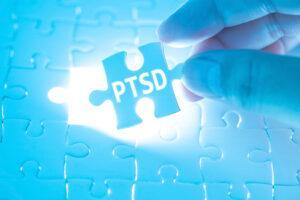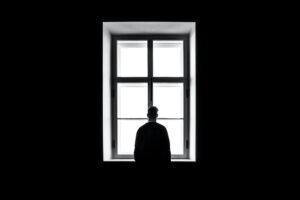
Taking on a police career usually involves some degree of shift work as well as the demands of overtime, traveling away from home and recalls to duty. These demands can and often do interfere with your natural circadian rhythms (internal biological clock).
It’s expected that police will rotate from day, afternoon and night shifts with ease, but the reality is very different and when you encounter many years of rotational shifts along with long hours and distressing working environments it’s not surprising that catching a good night’s sleep becomes more and more difficult as the years progress.
So, what do we do to address poor sleeping patterns when police work continually sets the scene for disrupted routines combined with the difficulty of switching off mentally and physically after a busy or distressing shift? Firstly, it’s helpful to understand the stages of sleep.
Four stages of the sleep cycle (non Rapid Eye Movement (nREM) and Rapid Eye Movement (REM)
- non REM – 1 to 5 minutes (dozing off/the body hasn’t fully relaxed/brain activity starts to slow)
- non REM – 10 to 60 minutes (a more subdued state, body temperature drops, muscles relax, breathing, brain activity and heart rate slows)
- non REM – 20 to 40 Minutes (delta waves or slow-wave sleep begins, muscle tone, pulse and breathing rate decreases and the body moves into a more relaxed phase. This stage is restorative and can support the immune system, recovery, and repair)
- REM – 10 to 60 Minutes (brain activity increases, vivid dreaming and essential cognitive function occurs)

To track your sleeping patterns, it’s important to take note of the number of hours you are sleeping per night, whether you have difficulty falling asleep and if you are having disrupted sleep by waking during the night and are you perhaps having difficulty falling back to sleep? It’s often surprising to note the variation in sleeping patterns tracked over several weeks which will assist you to think about whether you are in fact getting adequate sleep to allow the body to rest, repair and recharge. If this is the case, you might also think about Identifying unhelpful habits to assist with understand how this can contributing to interrupted or poor sleep levels.
An average of 8 hours uninterrupted sleep is ideal however this may vary depending on age and other environmental factors. Individuals may function well with more or less however it’s a good benchmark to maintain. Long term, poor sleep patterns may impact on various health issues such as a lowered immune system, appetite issues, weight gain, circulation and poor memory function.
- No matter when or what time you are sleeping, maintain a routine around preparing for sleep
- Turn your bedroom into a quiet, calm, cool and dark environment with good ventilation
- Remove unnecessary items, clutter, or piles of books in the bedroom to produce a pleasant space to rest
- During the evenings dim the lighting or switch on lamps in the home, avoid bright or overhead fluorescent lights and perhaps light a candle to create a soft and harmonious environment
- Avoid exercise, eating or drinking alcohol, caffein and nicotine at least 2 hours before going to bed (alcohol can initially assist with getting off to sleep however sleep will be interrupted and not maintained)
- Consider a light meal rather than large portions in the evenings and stay well hydrated
- Switch mobile phones to the nightshift settling which will automatically lower the screen brightness
- Avoid using mobile phones or tablets in bed prior to sleep or looking at your phone during the night as blue light emitted from the screen will tell your body clock that it’s time to be awake. This will trigger your body into alertness for at least 40 minutes and slow down the body’s natural production of melatonin
- Avoid watching triggering movies or news footage prior to sleep
- Listen to your body, if you begin to yawn and feel tired don’t put off going to sleep to finish watching a movie or other activities
- Refrain from looking at the clock if you wake during the night, this will heighten anxiety and make getting back to sleep more difficult
- Learn meditation and find a sleep practice that helps to relax the body and mind, apps can be downloaded and initiated via voice command to avoid blue light exposure
- Breathing techniques can also slow the mind and change the focus from looping thoughts to focusing on the breath
- Be mindful not to ruminate about worrying issues in the middle of the night, this is not the time to make major decisions or to address concerns

 Exit
Exit








